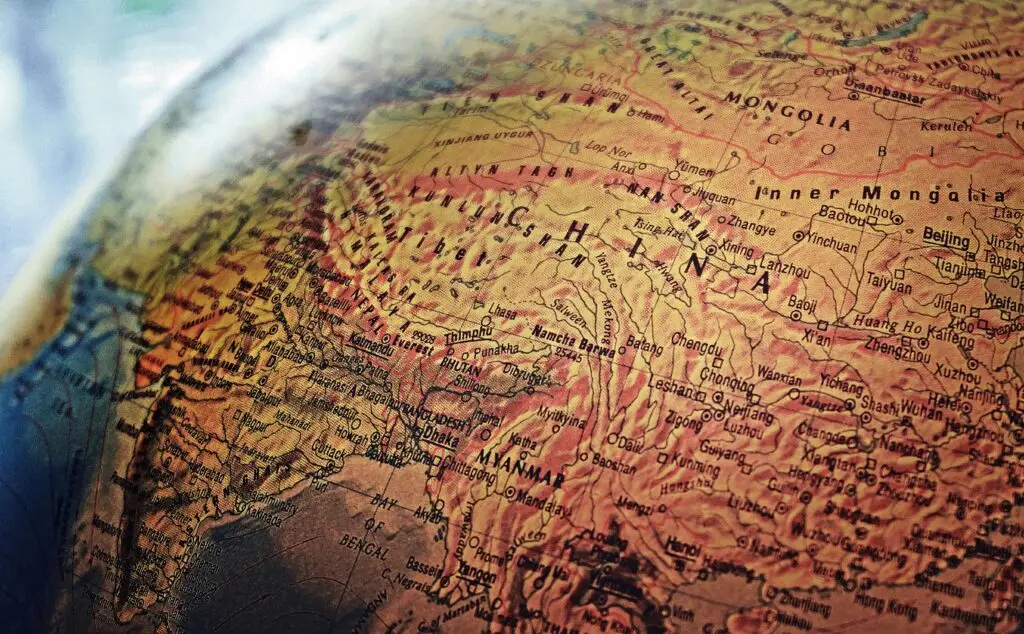India’s foreign policy is strongly influenced by a combination of geographical factors, historical experiences, and cultural traditions. These determinants have shaped India’s approach to international relations and continue to play a significant role in guiding its foreign policy decisions. Here’s a breakdown of these key determinants:
1. Geographical Determinants:
a. Location: India’s strategic location at the crossroads of South Asia, Central Asia, and the Indian Ocean region is a critical factor in shaping its foreign policy. Its proximity to key regions and waterways, such as the Arabian Sea, the Bay of Bengal, and the Indian Ocean, influences India’s economic, security, and maritime interests. India’s “rimland” geography positions it as a regional maritime power with stakes in the stability of the Indian Ocean.
b. Neighborhood: India shares borders with several countries, including Pakistan, China, Nepal, Bhutan, Bangladesh, and Myanmar. The dynamics of its immediate neighborhood have a profound impact on India’s foreign policy. Managing relations with these neighbors, addressing territorial disputes, and promoting regional stability are critical concerns.
c. Geostrategic Significance: India’s geography makes it a key player in the broader South Asian and Indo-Pacific regions. It is positioned at the crossroads of major powers and regional blocs, making it a pivotal actor in regional geopolitics.
2. Historical Determinants:
a. Colonial Legacy: India’s experience as a colony under British rule significantly influences its foreign policy. The struggle for independence against colonial powers instilled a strong sense of self-reliance, sovereignty, and a desire for an independent foreign policy. India is determined to avoid dependency on external powers.
b. Post-Independence Diplomacy: India’s post-independence foreign policy was shaped by leaders like Jawaharlal Nehru, who articulated a vision of non-alignment, peaceful coexistence, and decolonization. These principles became foundational to India’s foreign policy and continue to influence its approach to international relations.
3. Cultural and Traditional Determinants:
a. Cultural Heritage: India’s rich cultural heritage, characterized by religious diversity, art, literature, and philosophy, has contributed to its soft power and diplomatic approach. India promotes cultural diplomacy to enhance its global image and build relationships with other nations. Concepts like Vasudhaiva Kutumbakam (“The World is One Family”) reflect India’s tradition of global interconnectedness.
b. Traditional Diplomacy: India has a long history of diplomacy and trade, dating back to ancient empires and trade routes like the Silk Road and the Spice Route. These historical connections continue to influence India’s diplomatic engagements and its emphasis on economic partnerships.
c. Traditions of Non-Violence: The traditions of non-violence (ahimsa) and ethical conduct (dharma) rooted in Indian philosophy and religion have contributed to India’s advocacy for peaceful coexistence and conflict resolution through dialogue and diplomacy. Mahatma Gandhi’s non-violent struggle for independence left a lasting legacy in shaping India’s approach to international relations.
In conclusion, India’s foreign policy is deeply influenced by its geography, history, and cultural traditions. Its strategic location, neighborhood dynamics, colonial legacy, and a tradition of non-violence have all left indelible marks on the way India approaches international relations. These determinants continue to guide India’s foreign policy, impacting its stance on issues such as regional stability, global cooperation, and the pursuit of its national interests.
Refer Egyankosh ebook for more.


